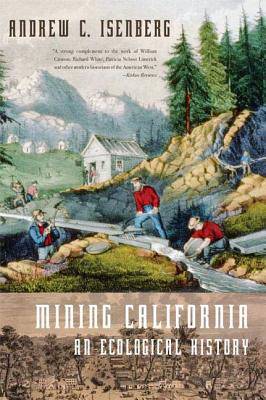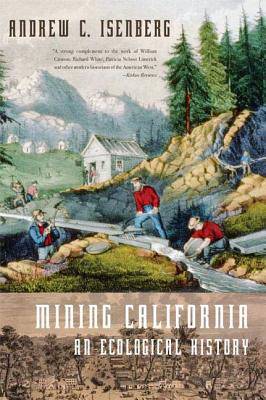
- Afhalen na 1 uur in een winkel met voorraad
- Gratis thuislevering in België
- Ruim aanbod met 7 miljoen producten
- Afhalen na 1 uur in een winkel met voorraad
- Gratis thuislevering in België
- Ruim aanbod met 7 miljoen producten
Omschrijving
An environmental History of California during the Gold Rush
Between 1849 and 1874 almost $1 billion in gold was mined in California. With little available capital or labor, here's how: high-pressure water cannons washed hillsides into sluices that used mercury to trap gold but let the soil wash away; eventually more than three times the amount of earth moved to make way for the Panama Canal entered California's rivers, leaving behind twenty tons of mercury every mile--rivers overflowed their banks and valleys were flooded, the land poisoned. In the rush to wealth, the same chain of foreseeable consequences reduced California's forests and grasslands.
Not since William Cronon's Nature's Metropolis has a historian so skillfully applied John Muir's insight--"When we try to pick out anything by itself, we find it hitched to everything else in the universe"--to the telling of the history of the American West. Beautifully told, this is western environmental history at its finest.
Specificaties
Betrokkenen
- Auteur(s):
- Uitgeverij:
Inhoud
- Aantal bladzijden:
- 256
- Taal:
- Engels
Eigenschappen
- Productcode (EAN):
- 9780809069323
- Verschijningsdatum:
- 1/07/2006
- Uitvoering:
- Paperback
- Formaat:
- Trade paperback (VS)
- Afmetingen:
- 140 mm x 208 mm
- Gewicht:
- 317 g

Alleen bij Standaard Boekhandel
Beoordelingen
We publiceren alleen reviews die voldoen aan de voorwaarden voor reviews. Bekijk onze voorwaarden voor reviews.












